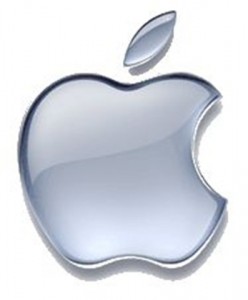 Apple has recently filed an application for a new patent on fuel cells which are designed to power mobile devices. These fuel cells would be used to create more efficient devices. The patent describes a technology for making mobile devices smaller and lighter in weight by utilizing a fuel cell system in place of the current batteries which are used in devices like laptops. This patent application follows on the heels of another patent application by Apple for a new hydrogen fuel cell design which is lighter than existing fuel cells.
Apple has recently filed an application for a new patent on fuel cells which are designed to power mobile devices. These fuel cells would be used to create more efficient devices. The patent describes a technology for making mobile devices smaller and lighter in weight by utilizing a fuel cell system in place of the current batteries which are used in devices like laptops. This patent application follows on the heels of another patent application by Apple for a new hydrogen fuel cell design which is lighter than existing fuel cells.
This hydrogen fuel cell patent was filed late last year, and describes a process for connecting multiple fuel cells in a single unit via a power bus and a circuit that multiplies voltage to add additional power to the stack.
The use of fuel cells to power a new generation of notebooks which are lighter and smaller than any devices available today will be enabled if this patent application is granted to Apple. According to the patent filings, one of the advantages of using fuel cells in place of other power sources is to reduce reliance on fossil fuels, as more consumers express a desire to move away from these older energy sources towards more renewable technologies.
Apple has noted in their patent application that it is the increased consumer demand and awareness for energy efficient technologies which is driving industry change towards these alternative technologies. Specifically, they note that the Electronic Product Environmental Assessment Tool (EPEAT) is one rating system which allows consumers to effectively compare the energy efficiency of various consumer electronic devices.
The engineers at Apple have designed the new fuel cells described in their patent application to work well with more conventional batteries. This application describes how fuel cells can be incorporated into consumer electronic devices, including laptops, in order to deliver optimal performance while reducing weight. Fuel cells are a compelling next generation technology because they are energy dense, which means they offer high energy efficiency when compared to conventional batter power.
The high gravimetric and volumetric energy densities which can be achieved with fuel cell technology may revolutionize the consumer electronics industry, allowing devices to go for days or weeks without charging up. The technology offers a superior solution to the age old challenge of making mobile electronic devices cost effective and portable, as noted by Apple in their patent application.





